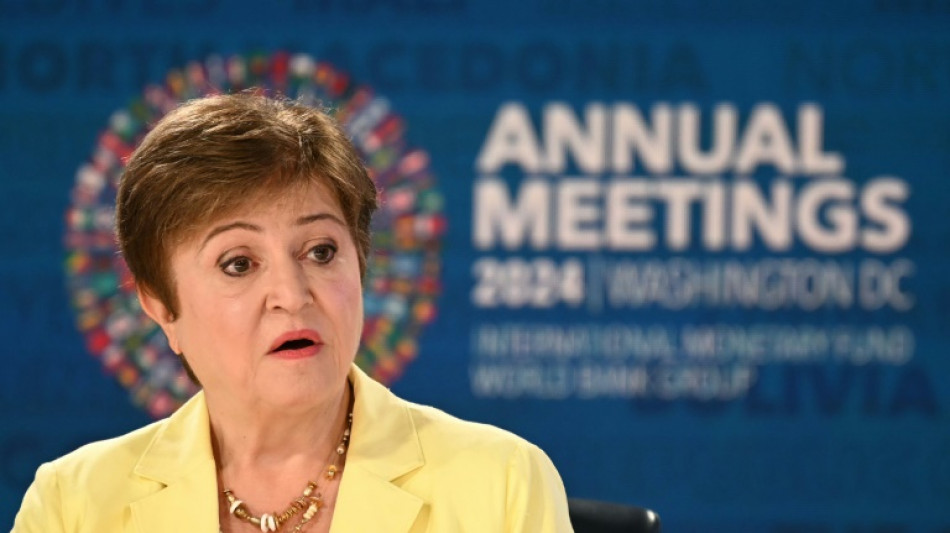
RBGPF
-0.0500


The global economy is likely to avoid a recession despite the hit to growth from US President Donald Trump's tariff rollout, the head of the International Monetary Fund said Thursday.
The stop-start US tariff plans have fueled levels of market volatility unseen since the Covid-19 pandemic, and most economists expect the imposition of new import levies will stifle growth and push up inflation, at least in the short term.
Trade disruptions "incur costs," IMF Managing Director Kristalina Georgieva told reporters in Washington on Thursday according to prepared remarks, adding that the Fund now expects "notable" markdowns to growth but no recession.
"This is a reminder that we live in a world of sudden and sweeping shifts," she said of the recent market volatility during her speech, which came ahead of next week's Spring Meetings -- a gathering of global financial leaders co-hosted by the IMF and the World Bank in the US capital.
"And it is a call to respond wisely," she added.
Her comments suggest the IMF will use its upcoming World Economic Report, published Tuesday, to pare back its previous forecast for global growth to hit 3.3 percent in 2025 and 2026.
- 'Uncertainty is costly' -
Georgieva said the current tariff tensions would likely have three major consequences for the global economy, with smaller advanced economies and most emerging markets likely to be more heavily affected due to their reliance on trade for growth.
"First, uncertainty is costly," she said, adding that it becomes difficult for business to make plans if they do not know how much their inputs will cost in the future.
"Second, rising trade barriers hit growth upfront," she said, adding that "tariffs, like all taxes, raise revenue at the expense of reducing and shifting activity."
"Third observation: protectionism erodes productivity over the long run, especially in smaller economies," she said.
Georgieva called on all countries "to put their own houses in order" by -- among other things -- gradually adjusting their fiscal policies to lower debt levels when necessary, and by maintaining an "agile and credible' monetary policy with a "strong commitment" to central bank independence.
- 'More level playing field' -
Countries should also prioritize tackling internal and external macroeconomic imbalances, Georgieva said.
For China, the IMF has recommended to China that it enact policies "to boost chronically low private consumption," and move the country away from its current state-supported, export-driven model of growth, she said.
The United States, she added, must work to put rapidly rising government debt "on a declining path."
And for the European Union, the focus should remain on improving competitiveness "by deepening the single market," she said.
Georgieva, who leads an organization that has long championed free trade, privatization, and more open economies, called on the largest countries to chart a path through the current trade uncertainty.
"In trade policy, the goal must be to secure a settlement among the largest players that preserves openness and delivers a more level playing field," she said.
The aim, she added, should be "to restart a global trend toward lower tariff rates while also reducing nontariff barriers and distortions."
"We need a more resilient world economy, not a drift to division," she added. "And, to facilitate the transition, policies must allow private agents time to adjust and deliver."
P.Deng--ThChM